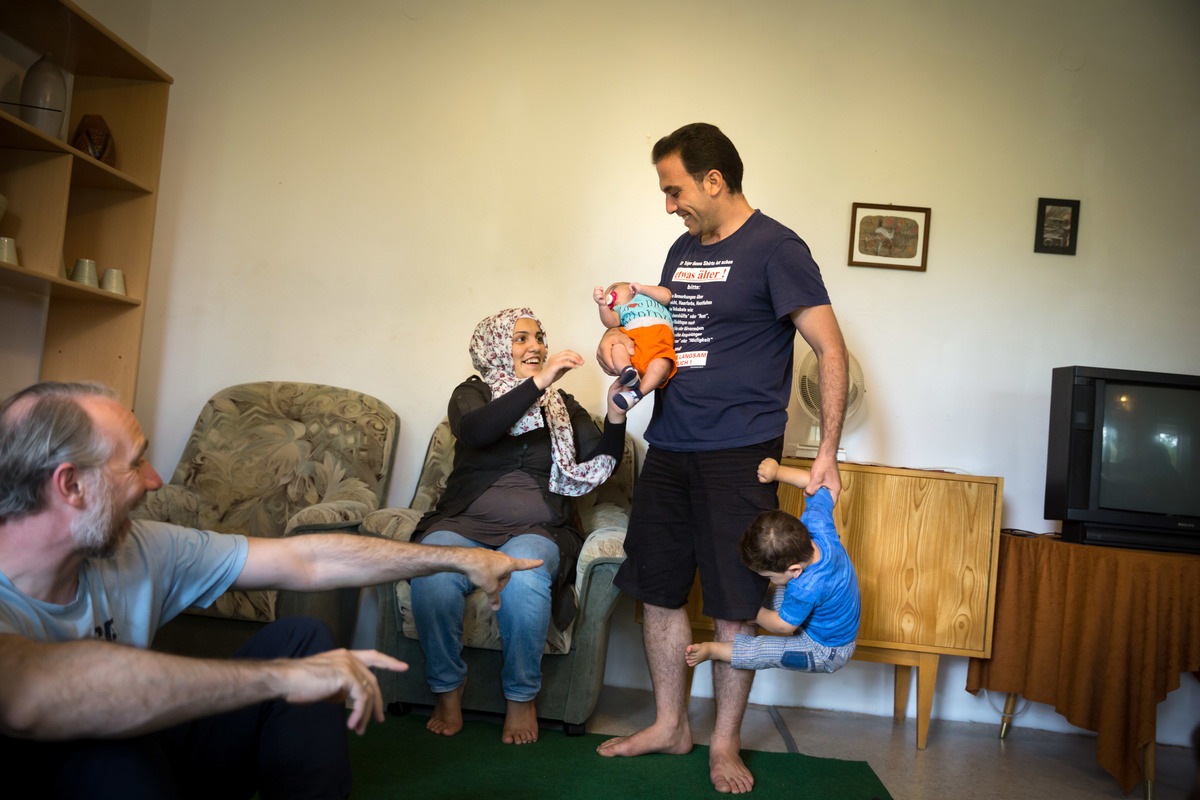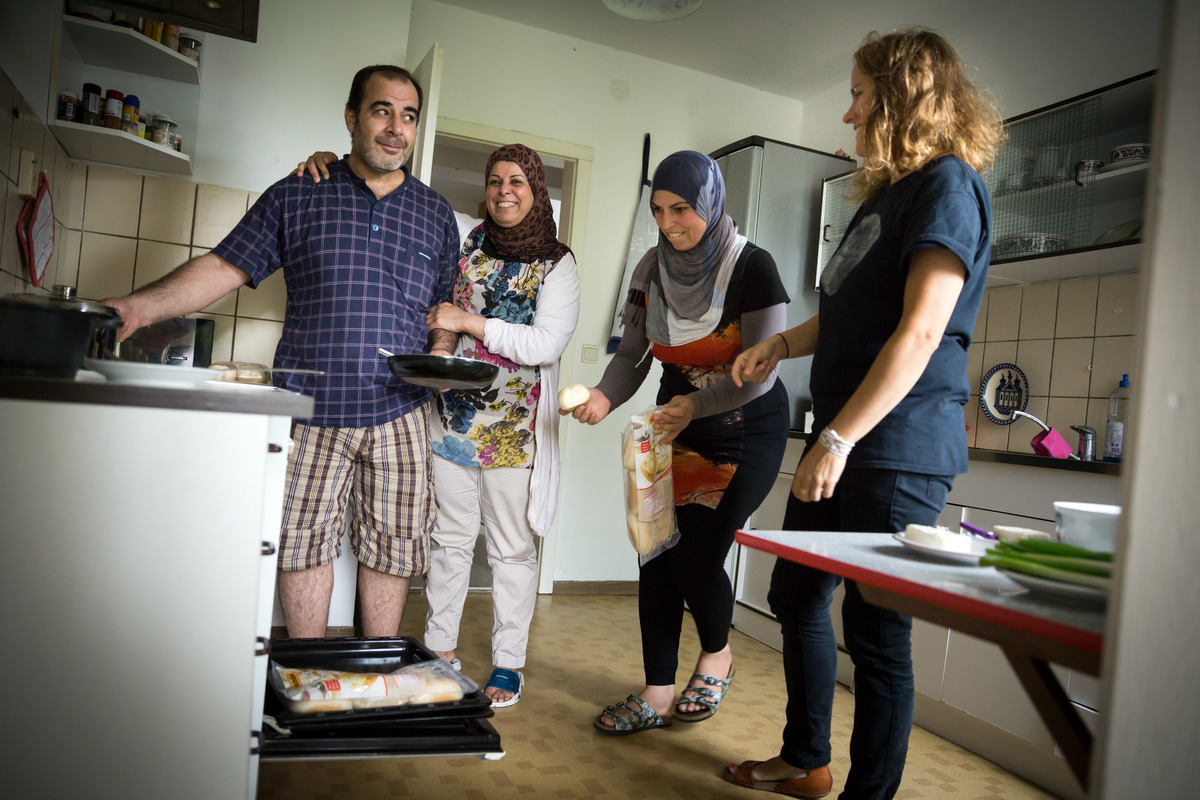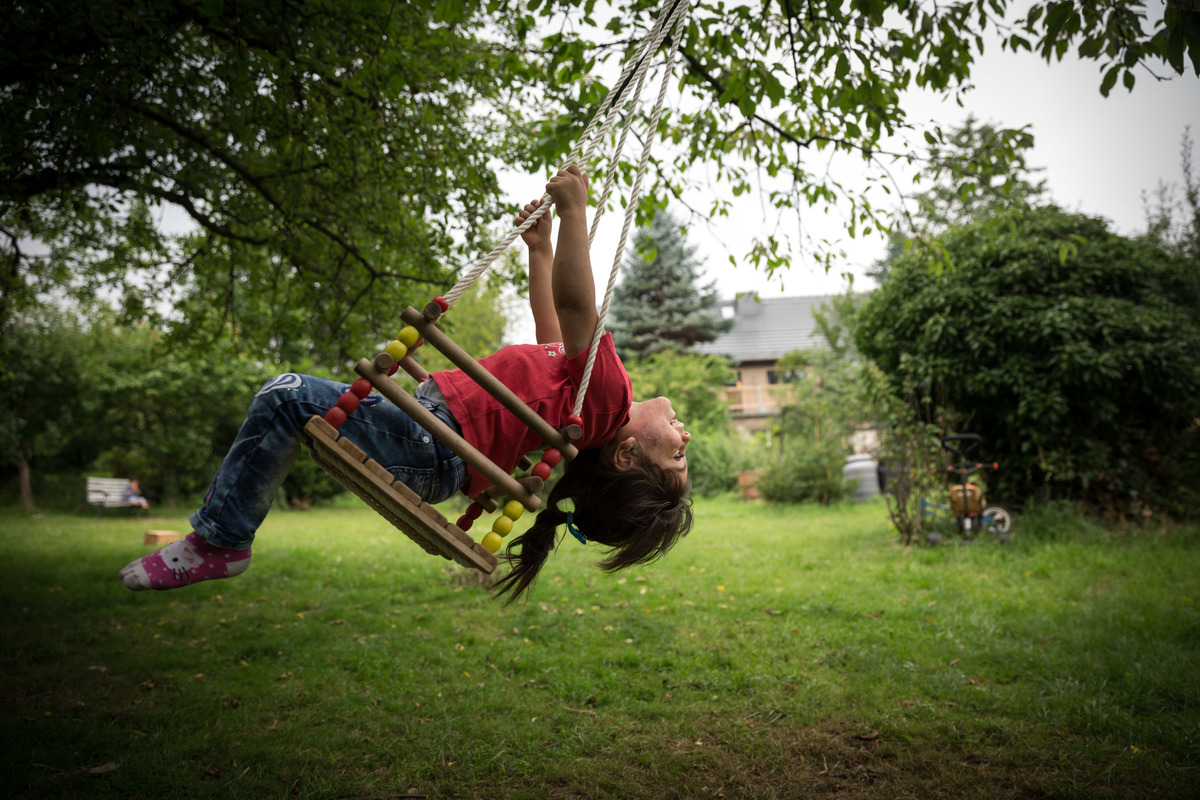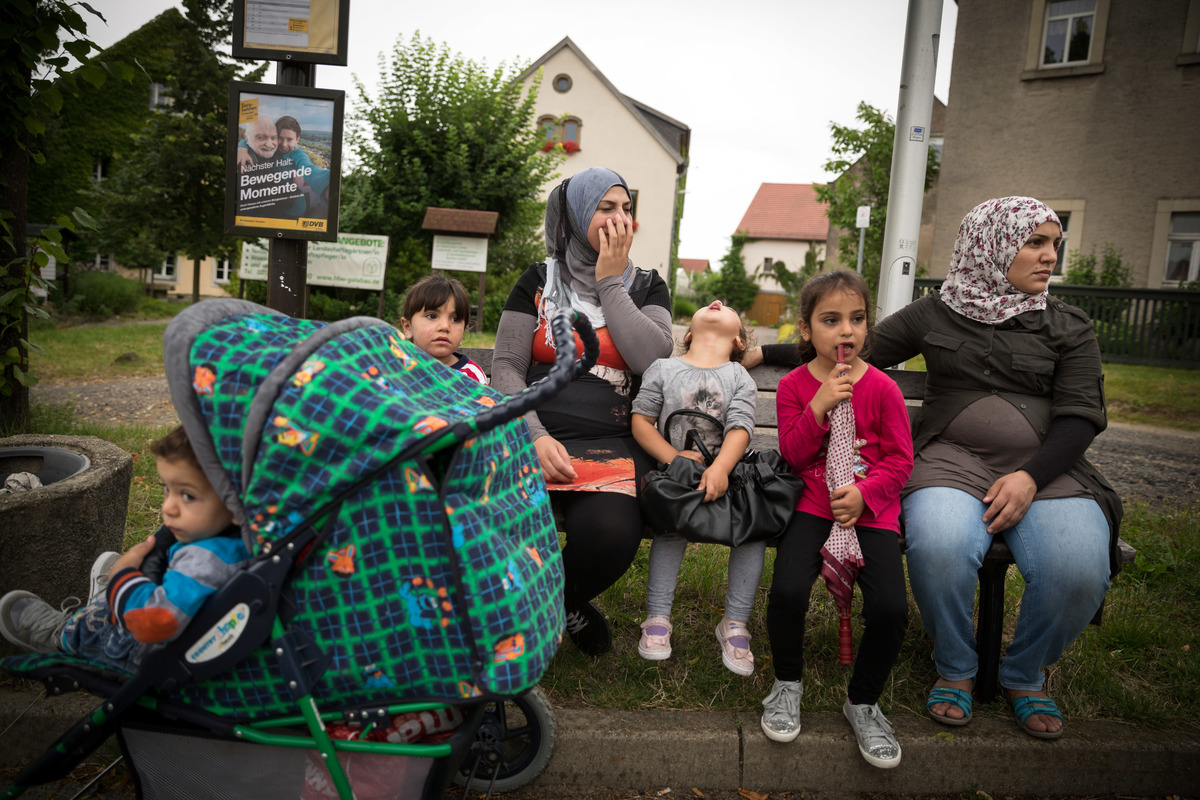Syrian family reunited in Germany after nightmare flight

Syrian family reunited in Germany after nightmare flight
Syrian refugee Fatima Khalouf crossed mountainous borders on foot at night, fought nausea on the choppy waters of the Aegean and trekked for hours across alien countryside.
Now the moment had come. In a nondescript temporary shelter in Serbia, her babies were to be born. However, it was not a simple birth.
“It started with the pain,” said Fatima, 28, sitting at the dining room table in a farmhouse in a village near Dresden. “My sisters-in-law went to those in charge at the shelter and said ‘help, the babies are coming’.”
She was rushed to hospital, where Serbian doctors delivered her twins by emergency caesarean section. Two weeks later, Fatima was back on her feet, a newborn on each arm, walking towards Germany and her husband.
Before the war, Fatima and her husband lived in the Qalamoun region north of Damascus. Her brother lived nearby with his wife Zaha and their four children, as did Zaha’s sister Iman and her husband and son. They were a tight family, six young cousins growing up as siblings.
In summer 2015, war arrived. Soon the men could no longer go outside for fear of being drawn into the fighting. They devised a plan to get out, to find safety for all. With no safe alternatives, they turned to smugglers. Without enough money for all 12 family members to go at once, they agreed the men would go on ahead.
After their husbands left, Fatima, Zaha and Iman moved in together. But by January this year, flight was the only option. “Rockets fell all the time, many people were killed. We were terrified for the children,” said Iman, 41.
“Our houses were bombed,” added Zaha, 35. “So we stayed with friends, moving here and there. Our biggest fear was that the children would be hurt or killed. We couldn’t stay there, letting them grow up in all this horror.”
The three women and six children set off across the war-torn country, travelling first by bus to Idlib, near the Turkish border.
“We couldn’t go back to Syria, we had nothing left for us there.”
There, smugglers told them the only choice was a nine-hour walk across the mountains to Turkey. On a bitter January night, they trekked over muddy ground. Fatima, seven months pregnant, slipped and fell as she scrambled up mountain paths. They did not stop to rest until they reached Turkey.
“Others we met begged us not to keep going, for the sake of the kids,” said Iman. “But it was for the kids we had to keep going.”

When they finally arrived at the Turkish coast, conditions were too rough to make the boat crossing to Greece.
After a week, the sea calmed and the women set off. It was midnight and the smugglers were waiting for them. They climbed into the flimsy boat and set off into the darkness.
“I prayed we would be saved,” said Fatima.
Fatima’s prayer was answered. They were picked up by a rescue vessel patrolling Greek waters and taken to the island of Samos, then by ship to Athens.
However, the family had arrived at a time when border fences were being erected along the west Balkans route. At the border Serbian police told them they would not be able to leave the country.
Fatima’s waters broke while Iman and Zaha were arguing with the guards. Twins were born after an emergency caesarean. “After 15 days Fatima was well enough to leave hospital,” said Iman. “We had to get to our husbands.”
Waiting again until the dead of night, Zaha and Iman bundled Fatima, her newborn twins and the other children into three taxis and headed for the Hungarian border. There they encountered a wire fence.
As dawn broke over the waiting crowds, the guards let the family through. That night they found a taxi to take them to Vienna. From there, they boarded a train to southern Germany.
The women spent the next few weeks moving between shelters near the eastern German city of Dresden, where they had been assigned for the asylum procedure. Their husbands were able to visit them from their own shelter in Duesseldorf on the other side of the country. It was the first time the children had seen their fathers in more than a year.

Bringing families together had advantages for the host country as well as for the individuals concerned, said Katharina Lumpp, UNHCR Representative in Germany.
“Family reunification is important so that concerns about family members stranded or trapped in conflict zones do not prevent a refugee establishing a new life in a host country,” she said.
A stroke of luck brought the family closer to realizing the dream of reuniting. In May, the women were told they were being transferred. A bus took them to a small village south-west of Dresden, to a home they could call their own.
“It’s very important to bring new arrivals to the villages and begin integration there, on a smaller, more personal scale.”
Waiting in the yard of the farmhouse they had renovated specially for the family were volunteers Sarah Brendal and her husband Stevi. They are the co-founders of Refugeeum, a project supporting and giving sanctuary to newcomers. Their mission is to facilitate integration in rural areas of eastern Germany, where a series of anti-refugee protests and attacks have made international headlines.
“It’s very important to bring new arrivals to the villages and begin integration there, on a smaller, more personal scale,” Sarah said. “Then you can start to change the way the neighbours think. They realize that the family here are actually very nice.”
For Fatima and her family, the relief that they are safe and will soon be reunited with their husbands permanently, is still sinking in. “We could have lost someone if we’d stayed in Syria,” said Iman. “We’re so grateful that our children can grow up with their fathers.”
Fatima concluded: “I’m so happy that we made it. I feel so much better knowing that the whole family is here and safe. Now I just want to take the opportunities they lost in Syria.”













